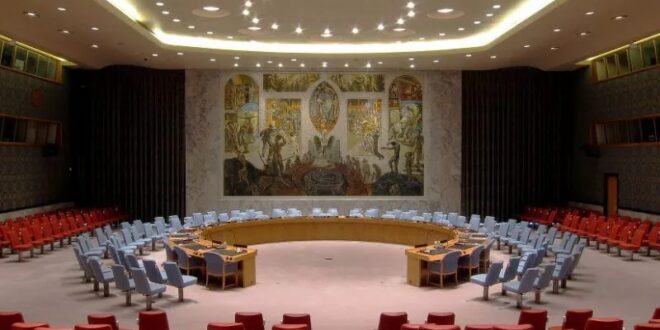The United Nations Security Council (UNSC), established in the aftermath of World War II, stands as a critical pillar of global governance, tasked with maintaining international peace and security. However, over the years, calls for reform have grown louder, highlighting the need for increased representation and effectiveness. While there is a visible upsurge in efforts by some countries to reform the UNSC, it is crucial to recognize that creating new centers of privilege within this body could potentially do more harm than good.
The historical context of the UNSC’s formation underscores the urgency of reform. Created in 1945, the UNSC was a product of its time, reflecting the geopolitical realities of the post-war era. It consists of five permanent members (P5) – the United States, Russia, China, France, and the United Kingdom – and ten non-permanent members, which are elected by the General Assembly for two-year terms.
Critics argue that the current structure does not adequately represent the diverse and complex geopolitical landscape of the 21st century. Calls for reform have emerged in response to this perceived imbalance. Proponents of reform assert that the expansion of the UNSC’s membership could lead to greater inclusivity and effectiveness in addressing global challenges.
The Proposals for Reform
Various reform proposals have been put forth, ranging from expanding the number of permanent members to altering the veto power structure. Proponents argue that including emerging powers and regions would better reflect contemporary geopolitical realities. They believe that increasing the number of permanent members could enhance the legitimacy of UNSC decisions and make it more responsive to emerging global challenges.
However, there are opposing viewpoints that question the wisdom of creating new centers of privilege within the UNSC. They argue that such reforms could exacerbate existing power imbalances and regional tensions. Moreover, there are concerns that expanding the UNSC’s membership might lead to decision-making gridlock and inefficiency.
Creating new centers of privilege within the UNSC could carry significant negative consequences. One primary concern is the risk of deepening existing global power imbalances. The P5 already possess significant influence and often wield their veto power to protect their interests. The addition of new permanent members could further consolidate power among a select few, potentially sidelining the interests and perspectives of smaller and less influential nations.
Furthermore, the implications for global cooperation and diplomacy should not be underestimated. An expanded UNSC may struggle to reach consensus on critical issues, hindering its ability to respond swiftly to international crises. Diplomatic efforts aimed at achieving consensus could become more challenging, further impeding the UNSC’s effectiveness.
Alternative Approaches to Reform
Rather than creating new centers of privilege, alternative approaches to reform should be considered. Strengthening the existing framework by enhancing the representation and voice of non-permanent members is one such approach. This could involve granting longer-term or renewable non-permanent memberships, providing a greater sense of continuity and influence on these nations.
Promoting inclusivity and consensus-building should also be prioritized. Multilateral diplomacy and cooperation are vital in addressing complex global challenges. Efforts should be directed toward fostering an environment where nations, both large and small, can work together to find common ground and shared solutions.
Examining the motivations of countries pushing for reform and studying historical instances of reform attempts can provide valuable insights. Countries like India, Brazil, Germany, Japan, and South Africa, often referred to as the G4, have been active proponents of UNSC reform. Understanding their motivations, as well as the experiences of nations that have previously sought reform, can help inform the current discourse.
Finding the balance between representation and effectiveness is the key to successful UNSC reform. While inclusivity is crucial, it must be achieved without compromising the body’s ability to make timely decisions and take effective action when needed. Striking this equilibrium requires careful consideration and diplomacy.
Conclusion
The debate surrounding UN Security Council reform reflects the evolving nature of global geopolitics and the imperative for the international community to adapt. While there is a visible upsurge in efforts by some countries to reform the UNSC, the path forward must prioritize the greater global good. Creating new centers of privilege may not be the most prudent approach, as it could potentially exacerbate existing issues and hinder global cooperation. Instead, a balanced approach that enhances representation while preserving the UNSC’s effectiveness is needed. Ensuring that reforms prioritize inclusivity, diplomacy, and consensus-building will be crucial in navigating the complex landscape of international relations in the 21st century. The quest for reform should ultimately strengthen the UNSC’s ability to fulfill its core mission of maintaining international peace and security while upholding the principles of equity and justice on which the United Nations was founded.
 Eurasia Press & News
Eurasia Press & News




